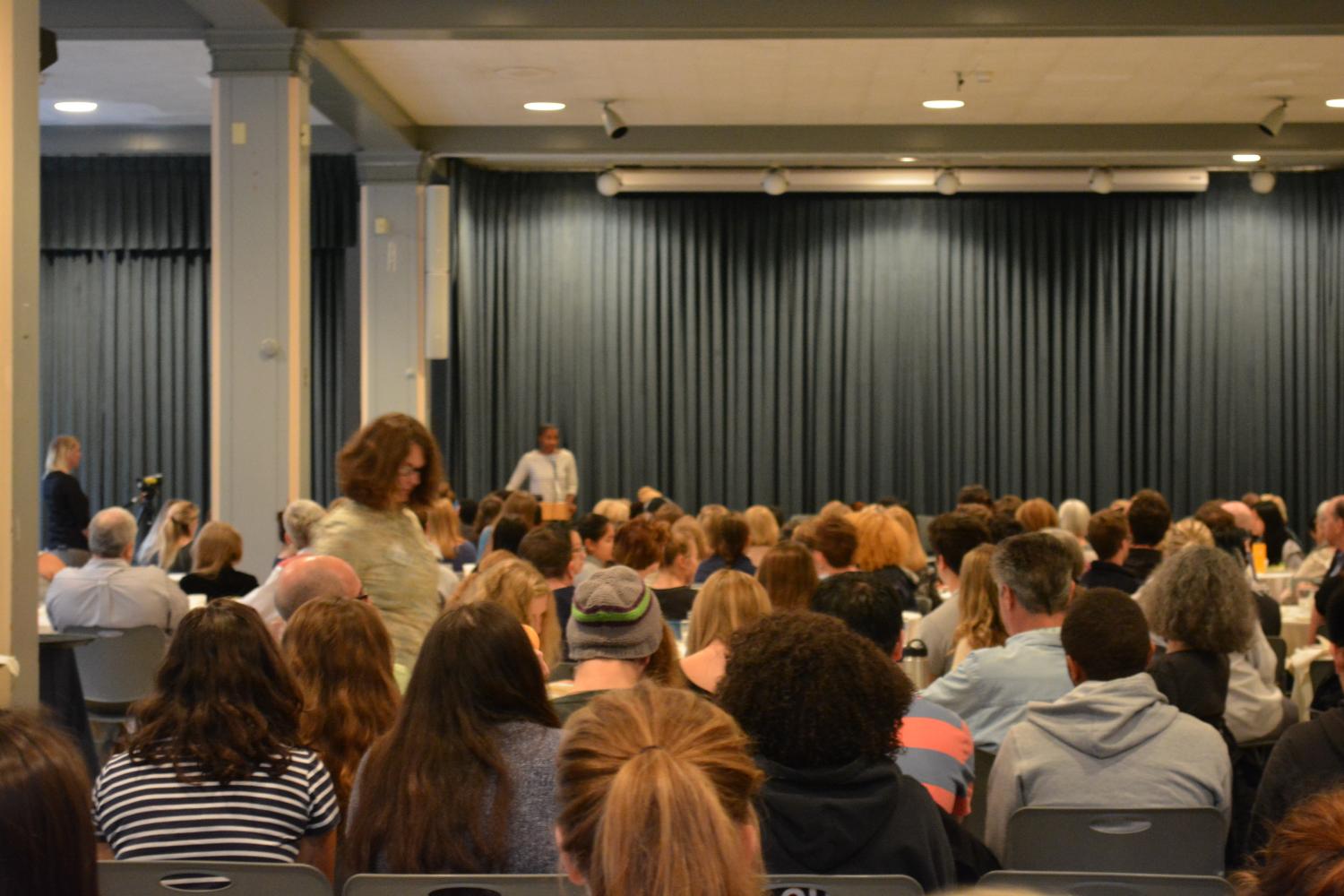Lewisburg Prison Project joins with University to imagine “a world beyond prisons”
September 7, 2017
Formerly incarcerated individuals share stories and spark dialogue with local community
“We see you, we support you, and we thank you for your story.” Audience members echoed these words in response to a collection of stories about the traumatic impact of mass incarceration. The storytellers were individuals affected by incarceration or the justice system, including workers and former prisoners.
“Mass Story Lab: Lewisburg,” was orchestrated partially in response to the first-year common reading assignment, Bryan Stevenson’s “Just Mercy: A Story of Justice and Redemption,” an influential lawyer’s account of what he deems a broken justice system.
The event, held in Larison Dining Hall on Sept. 6, was brought to the University by the Mass Story Lab project in conjunction with the Lewisburg Prison Project, a non-profit organization that is committed to protecting the constitutional and civil rights of prisoners in Central Pennsylvania. The project provides advocacy, information, and legal assistance regarding prisoners’ conditions of confinement.
According to their website, Mass Story Lab is “a participatory storytelling project that amplifies the voices of people who have been directly impacted by incarceration, leveraging the power of storytelling to inspire conversation and change in communities around the U.S.” that aims to create a “future beyond prisons.”
Deirdre O’Connor, Director for the University’s Writing Center, was a co-sponsor for the event and worked with the first-year reading committee and the Lewisburg Prison Project to coordinate the event. O’Connor hopes that the event will provoke the local community to “imagine alternatives to the current system that creates additional pain and trauma that perpetuates the violence that we’d like to see end.”
O’Connor described the prison as a place “where people are kept in solitary confinement for extended periods of time and where the mental illness of inmates is not appropriately attended to.” It is her hope that hearing the stories will cause students and community members to be more attentive to problems occurring just outside of the University.
The audience not only listened to the stories, but engaged in an interactive dialogue with those around them.
“Giving the different points of view that each represent a different facet of the experience gave it a much more real undertone and allowed for greater understanding […] Each person who spoke took responsibility for why they were incarcerated, but then gave more insight about the national epidemic of mass incarceration,” Zoe Lindahl ’20 said.
“Do we have just 2.3 million bad people or do we have 2.3 million [people] who are part of a system that structures their lives in ways that make it possible for those kinds of things to happen?” Sue Ellen Henry, professor of education said.
“The system makes it so hard to ever be able to come back when you come out because we put so many barriers in place[…]The depth of loss was so clear,” Tammy Hiller, professor of management, said.
The event was also co-sponsored by the the Provost’s Office, the Center for Social Science Research, the Social Justice College, the Center for the Study of Race, Ethnicity and Gender, the Griot Institute for Africana Studies, the Office of Civic Engagement, the Managing for Sustainability Program, the Writing Center, and the philosophy, political science, and sociology and anthropology departments.






















